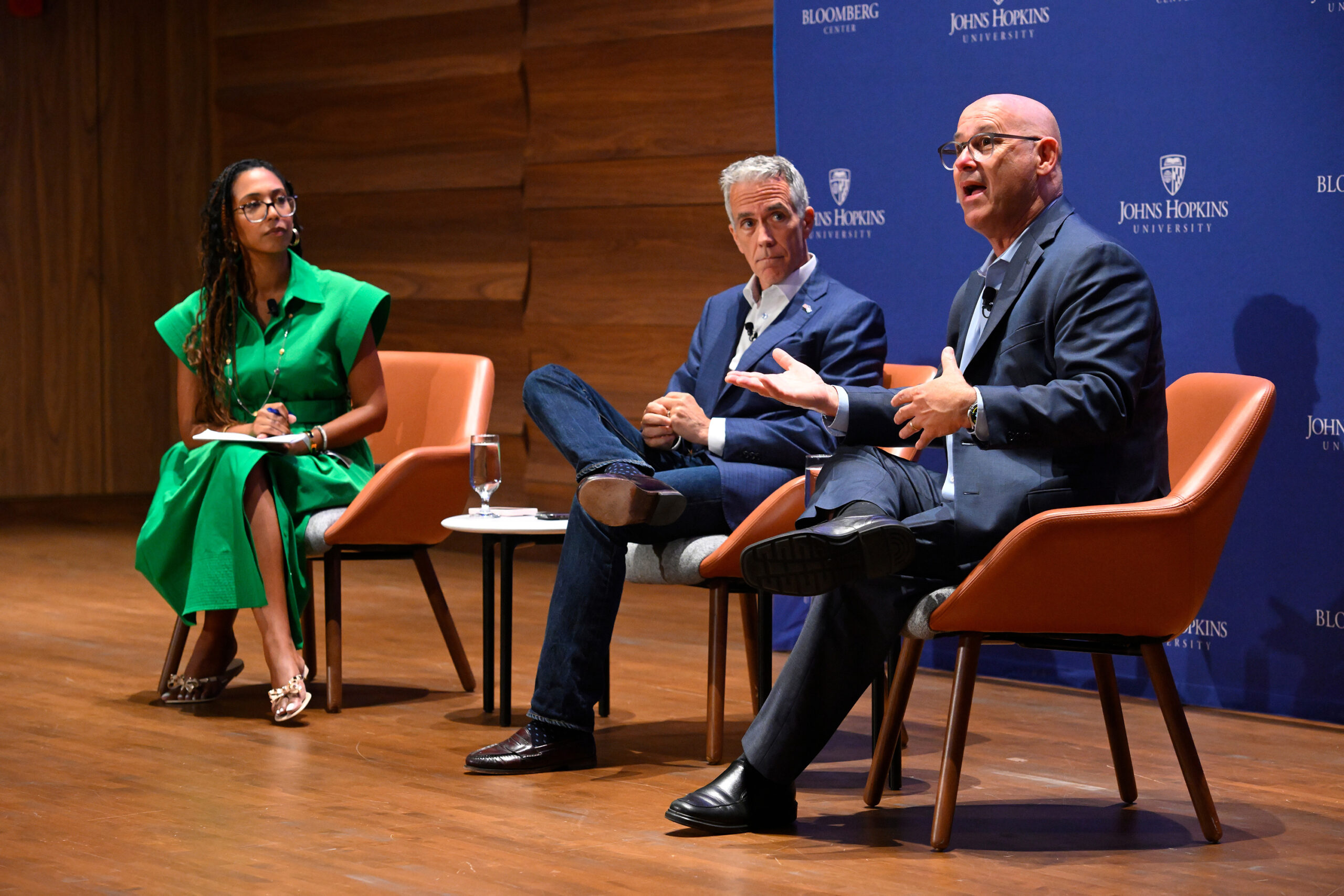How two partisan enemies became friends
Joe Walsh and Fred Guttenberg discuss the need for bipartisan conversation as part of their Two Dads Defending Democracy tour

- Image Will Kirk
On paper, former congressman Joe Walsh and Fred Guttenberg have almost nothing in common.
Walsh is a Tea Party Republican and avid gun rights advocate. Guttenberg, whose daughter was killed in the 2018 Parkland school shooting, is a gun control activist.
The two spent years sparring on X, formerly known as Twitter, trading barbs and turning up the heat on the political conversation. That changed, though, when Walsh posted saying that while he disagreed with Guttenberg, he respected him. That tweet led to a phone call, then dinner when Guttenberg was in Washington, D.C., and, eventually, a friendship that surprised them both.
Now, the two men are touring college campuses, as Two Dads Defending Democracy, modeling civil conversations on difficult topics, something they think is critical for our democracy. Their tour recently took them to the Johns Hopkins University Bloomberg Center. Here are three key points from their talk:
- Increased voter turnout will help increase civility.
Guttenberg argued that more extreme politicians—on both sides of the aisle—are getting elected because of low voter turnout. Boosting voter turnout would help to moderate the politicians elected.
“Voting solves problems,” he said. “The more of us who vote, the lower the temperature will be.”
- The media and social media incentivize disagreement.
Both men argued that social media algorithms and a 24-hour news cycle encourage rage and controversy, rather than civil, solutions-oriented conversation.
“On television in my old FOX News life, I was told repeatedly to be as outrageous as you can be. In my new CNN and MSNBC life, I’m told the same thing,” Walsh said. “On social media, be as outrageous as you can be, and you’ll get followers.”
- X isn’t real life.
Guttenberg and Walsh share a love for X, but Guttenberg cautioned users to remember it’s not the best place for in-depth conversation or relationship building.
“I also throw a lot of elbows on Twitter, and it’s easy to do when you’re typing,” he said, “but personal engagement, taking the time to look someone in the eye, taking the time to hear them out, and learning how to do that goes a lot further.”